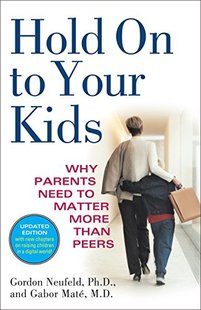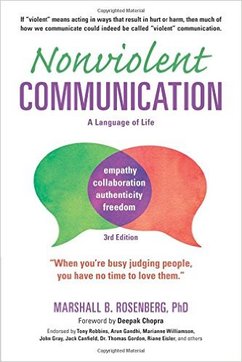In my work with moms, I meet a lot of very well intentioned ones who purposely avoid saying ‘no’ to their children at all costs. Or who, though they do understand it’s important to set boundaries in relationships and that it doesn’t serve children well to acquiesce to all their requests, still struggle to do so. Their main reasons are usually one or more of these:
In my experience, both personal and professional, there are many issues with avoiding saying 'no' to children at all costs. I believe the two most important things for people to thrive, during childhood and adulthood, are A ROCK SOLID SENSE OF SELF and A FEELING OF TRUE SAFETY, both in the world and within their own skin. And neither avoiding disappointment nor providing full autonomy to children leads to them. (I’m about to publish an important article on that sense of safety, so to find out more about it and make sure not to miss it, make sure you’re on my email list. Click here to join and receive my FREE 8 page report, The Almost Magical Formula For Surprising Ease and Harmony in Your Family While Fully Honoring Your Children’s Spirits.) I also believe there are key abilities children need to develop in order to thrive and succeed as adults: they need to know and be able to honor their own voices and they need the ability to set boundaries. And I don't see how children can fully develop those qualities if they’re not clearly modeled to them. They also need to be able to accept and deal with disappointment. No one can ever always get what they want, and resiliency in the face of disappointment, as well as the ability to postpone satisfaction are key to thriving as an adult. One important concept that I teach parents is what Gordon Neufeld coined as ‘hitting the wall of futility’ (which he talks about at length in his book Hold On To Your Kids, one of the most important parenting books, in my opinion.) This is the moment when we see the futility of continuing to try to attain what we want, to convince someone of something, to stay in our anger or frustrated feelings, and move on to accepting that we’re not going to get what we want, and consequently let ourselves feel the sadness that’s inherent in that acceptance, and mourn that our desire won’t be met. This mourning is what brings us back to center, to peace, to wholeness (click here for an article on the importance of mourning in parenting.) This is a critical skill in becoming a mature adult, and one that few unfortunately master. And it can only develop through parents being really clear with their children, not being afraid to unequivocally ‘tell it like is.’ Like saying ‘I know you really want me to buy this for you, honey, but I won’t,’ or ‘I know you really want to play with the truck right now, but Johnny has it,’ or ‘I know you really want me to take you to the playground right now, but I’m not feeling up for it.’ And then of course empathizing with them and holding space while they process the disappointment. As parents, it is our responsibility to make sure that our children’s NEEDS are met. But much too often, parents lose track of the difference between wants and needs. They, consciously or not, feel they have to fulfill all their children’s wants, believe they are not meeting their children needs if they don’t fulfill a want. Nonviolent Communication (a book I consider essential for all parents, and the only book I request that all parents who take my Clean Parenting Program read) teaches us about the distinction between needs and strategies to meet those needs. The value of knowing this distinction is that we can identify the underlying needs beneath the children’s wants, and make sure those needs are met even if we can’t, in a way that keeps us and our family in a state of balance, fulfill their want. Here are some examples that illustrate that distinction:
I also see a key to thriving and succeeding as an adult, both professionally and in relationships, is being able to interact with others in a respectful, kind, compassionate, and assertive way. It’s also important to be skilled in finding ways of meeting multiple people’s needs, through discussions, debates and compromises, to create families and organizations where everyone can thrive. But how can children learn to treat people with respect and learn to live in society, in a way that multiple people’s needs can be met, if their parents are not giving them accurate and honest feedback, and providing the loving and safe setting in which to first learn those skills? Also, how can the parents be the best possible parents to their children, if they are ignoring and suppressing their own needs, and are just at the service of children, refusing to set any boundaries on issues that impact them? One of the most important work I do with moms is help them figure out and honor their own needs, and only through doing so can they finally parent in alignment with their values, because their cups are finally full, because they’re finally functioning within their window of tolerance. Anything that encourages parents to ignore their feelings and needs ultimately ends up backfiring on the children. But what most stands out to me, because of what I’ve observed in the families I work with, is the issue of SAFETY. I think of the massive shifts that happen in the children of moms I work with, who previously avoided setting boundaries and saying no at any cost, which are almost palpable. Once they put more of themselves into the relationship, and own their role as a leader. Many children, almost overnight, become SO MUCH HAPPIER! They become calmer, more grounded, way more cooperative, because they finally feel right. They feel fully safe. Though they of course are full human beings, they are new to this world and unable to meet their own needs, and it feels good, it truly makes them feel safe, when they know someone knows what’s going on and what’s needed, and matter of factly makes it happen. When they feel someone’s in charge, has things figured out, and will take care of them. Another reason parents setting boundaries where they feel true makes children feel right and safe is because there’s congruence between what the children pick up on and what parents say. It doesn’t feel good to children if mom says yes to helping them with something, but they can also tell she either doesn’t really want to, or doing so is taking a toll on her. Feeling congruence between what they feel and what they’re told and witness in their lives makes them feel at peace, that they are on solid ground. I see amazing results in my Clean Parenting™ program, beyond what even seems possible, in just 2 months (you can read the program page for loads of testimonies.) And when I ask moms, at the end of it, what are the most important things they learned from the program, the vast majority say that it’s focusing on meeting their own needs. And that the most valuable skills they’ve learned are how to tune into and honor their own voice, and step up as a clear benevolent leader to their children. Both of which have nothing to do with avoiding disappointments for children and saying yes at all times. Yes, it is critically important to have realistic expectations of children, to set boundaries responsibly and respectfully and to support our children in their difficult experiences. But avoiding saying 'no' to them at all costs benefits no one. Lots of love,
2 Comments
Faye
6/28/2018 03:50:27 pm
Thank you for this article. It has helped me to clarify what I think about some of the radical unschooling philosophies I've read. The examples you gave definitely make sense to me. When a child is asking you to provide something (like a cookie or your breast for nursing), you should be able to say "No." But I'm wondering what you think about situations when you need your child to do something (like get in their car seat or take a medicine). Do you think it is ever appropriate to use physical force in these situations?
Reply
Lauren Ruwoldt
6/30/2018 12:21:15 am
Hi Eliane,
Reply
Leave a Reply. |
PARENTING FOR WHOLENESS
HOME BLOG PROGRAMS CLEAN PARENTING™ PROGRAM QUICK START PROGRAM CONTINUUM CONCEPT WHAT IS CLEAN PARENTING™? © 2021 PARENTING FOR WHOLENESS |
|







